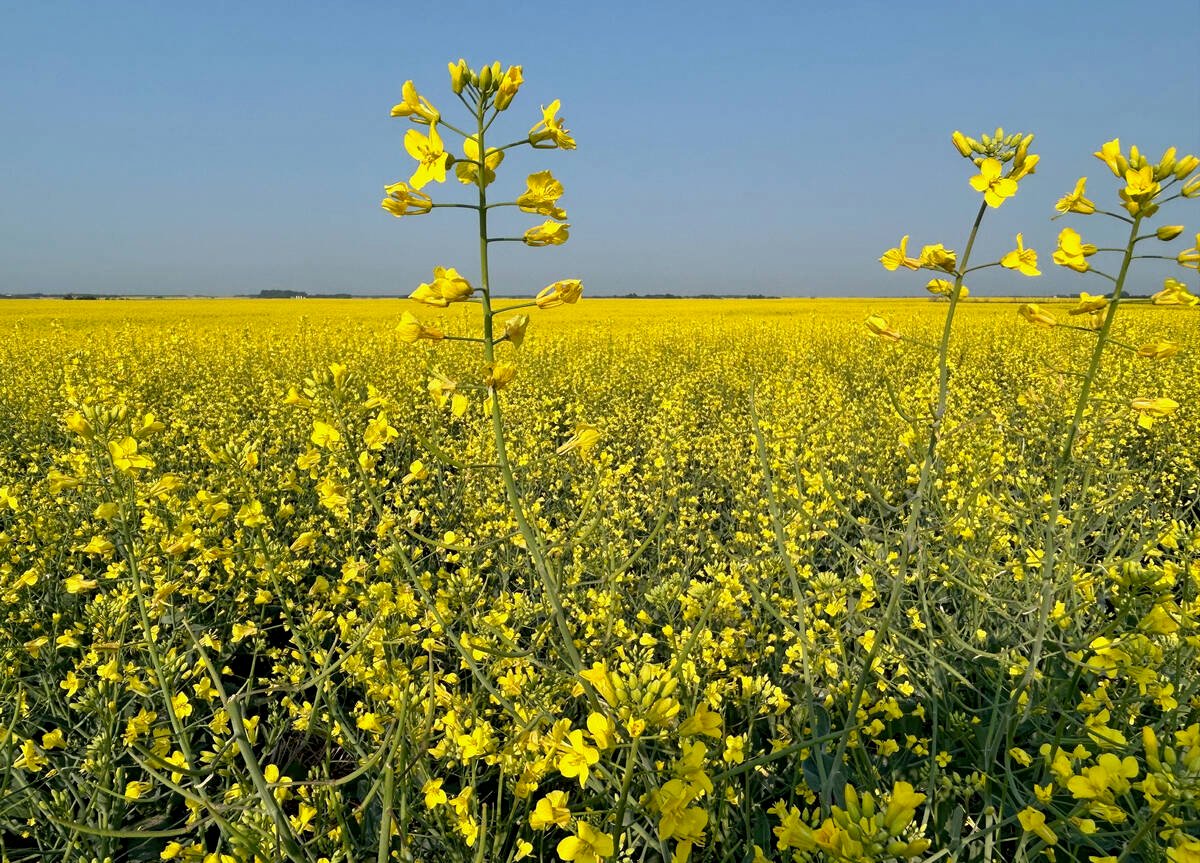The federal Progressive Conservatives last week proposed to eliminate Agriculture Canada as a separate department, cut $600 million more from government agriculture spending, end all farm supports and increase user fees on the industry.
It all led national farm leader Jack Wilkinson to shake his head in bewilderment.
“If that is what they are running on in the election, it will be treated from cool to antagonistic in the farm community,” the Canadian Federation of Agriculture president said from his northern Ontario farm.
“Looking at this, it almost would appear the Tories haven’t had anyone going to the Commons committee or Question Period or been around Ottawa for the last four years. They don’t seem to know what has been happening in agriculture.”
Read Also

Record canola harvest expected
Anecdotal reports from agronomists, crop production advisors, landowners and grain industry reps, combined with provincial reports, indicates that canola yields could break the yield record set in 2016
The Conservatives, under leader Jean Charest, launched their 1997 election campaign March 18 by releasing their policy booklet Let the Future Begin.
They hope it will lift them from the near oblivion of two House of Commons seats, neither one rural, that the voters gave them in 1993.
The Conservatives also promise to abolish the federal gun control law.
Amidst the pages of promises of a balanced budget by 2000, a 10 percent income tax cut in the first year of a Tory government, a total of $12 billion in income tax cuts by 2005, more power to the provinces and massive additional cuts to the federal government, there is not a word about farm policy.
More coming later
Party spokesperson Tom Van Dusen said in an interview a separate agriculture policy document will be published later. “These are the generic promises and directions and there will be more detail later on things like agriculture,” said the one-time aide to former agriculture minister Don Mazankowski.
But as part of his plan to restructure government, Charest did say Agriculture Canada would be rolled into a new super ‘sustainable development’ department with environment, fisheries and natural resources.
In an appendix to the policy booklet, the Conservative leader included several paragraphs of implications for the agriculture portfolio.
A total of $608 million would be cut from next year’s projected departmental budget of $1.452 billion. The federal department’s goals would be “aligned” more closely with “the large and well-funded provincial ministries of agriculture.”
Farm subsidies would be “reduced and eventually eliminated” in line with trade deal commitments, said the Tory platform. Elimination of the dairy subsidy would be done faster than the Liberal plan of five years.
More research and development would be moved out of the department to private companies. “In exchange, we will be looking to increase cost-recovery for food inspection and regulatory oversight.”
This is the bare bones of the policy that Tories will use to try to win back the rural seats that until 1993 were the core of Conservative support.
Lack of knowledge
Wilkinson said it is a strange way to appeal to rural areas. He said the policy showed a lack of understanding of how much agriculture already has been cut and what Canada’s trade deal obligations really are.
Most farmers would not want to see agriculture combined with the environment department, he said.
Most provincial agriculture departments also have been cut and are not the large and well-funded institutions Charest seems to believe.
Canada is not required to eliminate farm supports under world trade rules and in fact, has cut far more than is required or than competitor countries have done.
And the proposal to increase user fees and cost recovery flies in the face of the current farmer uproar over existing levels of user fees imposed by the Liberals.
“They already are too high,” said the CFA president. “Haven’t these people been listening? Don’t they understand there has been a three-quarter elimination of the ag budget already and the same is happening in the provinces?”
















